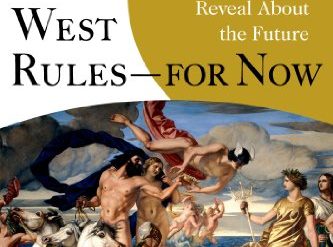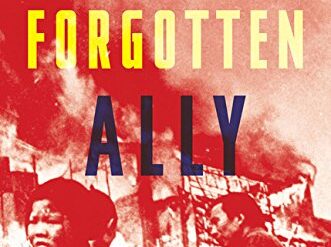
For many years, I’ve been reading a great deal about World War II, both fiction and nonfiction. And that reading is reflected in the reviews I’ve collected at 5 top nonfiction books about World War II and The 10 best novels about World War II, both of which include dozens of runners-up. But in the course of my reading, I’ve concluded that much of what I’d heard or seen on film or television has given Americans a highly distorted view of the conflict. I’ve immodestly attempted to correct some of that misunderstanding in a long article entitled “Seven Common Misconceptions about World War II.”
The full article runs to nearly 9,000 words and is far too long to post here. Instead, you’ll find it at the link above or at this link. As a teaser, I’ve included here the first of the seven misconceptions and the headlines of the others.
#1. World War II lasted for four years.
Some historians consider World Wars I and II to be part of a single protracted conflict—a twentieth-century Thirty Years’ War, if you will. Others argue that the second global war began in 1931 when Japan’s renegade Kwantung Army engineered the Mukden Incident and subsequently invaded Manchuria. Others still might contend that the Italian invasion of Abyssinia (Ethiopia) in 1935-37 or the German and Italian involvement in the Spanish Civil War in 1936-39, usually thought a dry run for the Axis, should be considered of a piece with the global conflict.
Although the historical consensus in the West dates the launch of World War II to September 1, 1939, when Nazi armies forced their way into Poland, from a global perspective the war had already been underway for at least two years. On July 7, 1937, Chinese and Japanese troops exchanged fire in the vicinity of the Marco Polo (or Lugou) Bridge, a crucial access route to Beiping (today Beijing). What began as confused, sporadic skirmishing soon escalated into a full-scale battle in which Beiping and its port city of Tianjin fell to the Japanese.
That was more than four years before Pearl Harbor (December 7, 1941). And the US military became actively engaged in hostilities in the European theater only on November 8, 1942, when American and British troops under the command of Dwight Eisenhower invaded Morocco and Algeria. Less than four years of active warfare later, World War II staggered to a close on September 2, 1945, when the Empire of Japan surrendered on board the battleship Missouri. For the USA, then, the war had lasted for just four years. Much of the world had suffered for at least eight.
#2. The US lost as many dead as our allies.
#3. The Normandy invasion was the biggest battle of the war.
#4. The Allies defeated the Axis against great odds.
#5. Adolf Hitler was a military genius.
#6. The USA won because of our military strength.
#7. For the USA, WWII was a white man’s war.
And there were many other myths and misunderstandings.
For additional reading
You might also be interested in:
- 5 top nonfiction books about World War II (plus many runners-up)
- The 10 best novels about World War II (with 30+ runners-up)
- The 10 most consequential events of World War II
- Top 20 popular books for understanding American history
And you can always find my most popular reviews, and the most recent ones, plus a guide to this whole site, on the Home Page.

























